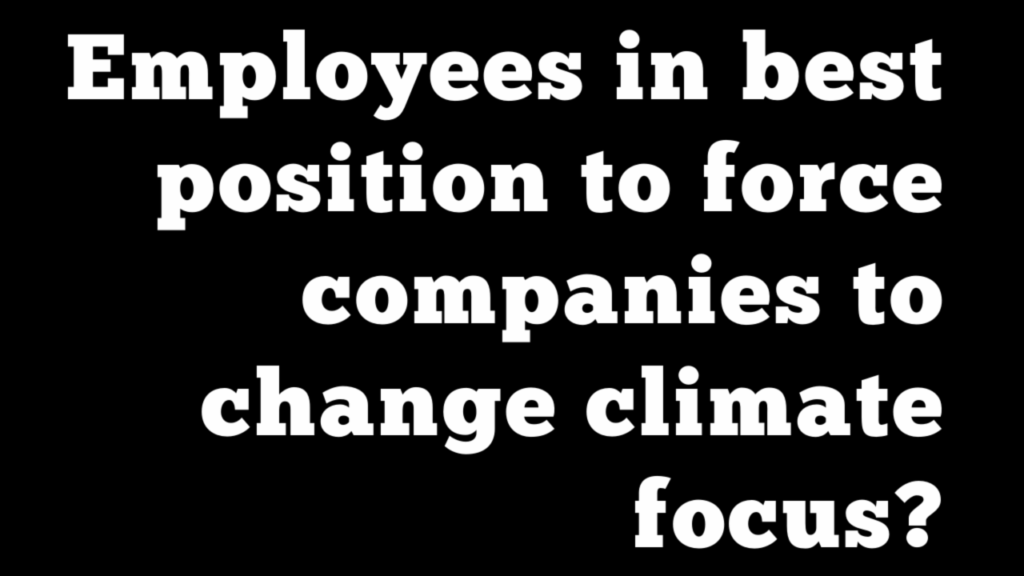Employees in the best position to force companies to change climate focus?

Check out this report from McKinsey’s entitled “Help your employees find purpose—or watch them leave.” Here’s an excerpt:
Nearly two-thirds of US-based employees we surveyed said that COVID-19 has caused them to reflect on their purpose in life. And nearly half said that they are reconsidering the kind of work they do because of the pandemic. Millennials were three times more likely than others to say that they were reevaluating work.
Such findings have implications for your company’s talent-management strategy and its bottom line. People who live their purpose at work are more productive than people who don’t. They are also healthier, more resilient, and more likely to stay at the company. Moreover, when employees feel that their purpose is aligned with the organization’s purpose, the benefits expand to include stronger employee engagement, heightened loyalty, and a greater willingness to recommend the company to others.
Here’s the last point made by Danone’s Emmanuel Faber in this Financial Times article where he speaks out about his ousting at Danone:
MM: Earlier you used the phrase: “If you want to kill your dog, say he has rabies.” In this instance, is ESG the “rabies”, so to speak? There’s certainly cause for scepticism around many companies’ ESG pledges. But what needs to be done to win over hearts and minds of those that are sceptical of sincere efforts to improve a business’s impact on people on the planet?
EF: I would say employees. The Glassdoor strategy. Employees, you know, they are the boss. So if you let employees be a voice in the company and outside the company about what is truly at stake, there will be a swing. The more this new generation will be there, [pushing ESG issues] the more need there will be for the top management to act. I think as leaders we should like [employee action]. But in reality the people that have power may not like this!
